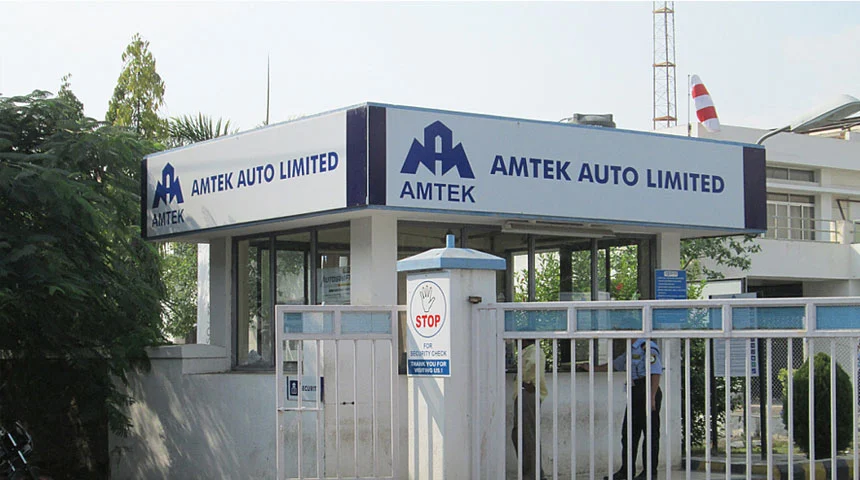GURUGRAM, March 28, 2025 — In a sweeping move against one of India’s largest corporate fraud cases, the Enforcement Directorate (ED) has attached Rs 557.49 crore worth of assets belonging to Amtek Auto Group and its promoter, Arvind Dham, under the Prevention of Money Laundering Act (PMLA), 2002.
The action is the latest development in a long-unfolding saga of financial mismanagement, fraudulent bank loans, and alleged money laundering that has left public sector banks with losses exceeding Rs 27,000 crore.
This latest seizure follows a Rs 5,115.31 crore asset attachment from September 2024, which has since been confirmed by the PMLA Adjudicating Authority. With over 40 locations raided, key arrests made, and a prosecution complaint filed, the case has exposed deep vulnerabilities in India’s corporate lending and insolvency frameworks—raising urgent questions about financial oversight and accountability in the banking sector.
A Legacy of Fraud: The Amtek Auto Collapse
For years, Amtek Auto, once a powerhouse in India’s automobile component industry, appeared to be a thriving enterprise. But behind the facade, investigators allege, was a massive web of financial deceit—falsified statements, inflated assets, and loans secured under false pretenses.
ALSO READ: Now Open: Pan-India Registration for Fraud Investigators!
When the cracks became too large to ignore, several Amtek firms, including M/s Amtek Auto Limited, M/s ARG Limited, M/s ACIL Limited, M/s Metalyst Forging Limited, and M/s Castex Technologies Limited, were pushed into insolvency.
The banks, many of them public sector lenders, were forced to take haircuts of more than 80 percent, effectively writing off vast sums of money. What should have been a mechanism to revive distressed businesses instead became a tool for evading liabilities, drawing scrutiny to India’s insolvency and bankruptcy process.
The Supreme Court Steps In
The scandal took a decisive turn in February 2024, when the Supreme Court of India, responding to a Public Interest Litigation (PIL), directed the ED to investigate the Amtek Group for alleged financial misappropriation.
The court, alarmed by the sheer scale of the fraud and the apparent ease with which public funds had been siphoned, overruled attempts by banks to settle the matter quietly and ordered a full-scale probe.
At the same time, the Central Bureau of Investigation (CBI) had already been looking into the case, following complaints from IDBI Bank and the Bank of Maharashtra. The allegations? Massive loan diversions, fraudulent use of public funds, and wrongful losses inflicted on the banking system.
ED’s Investigation: A Trail of Financial Deception
The Enforcement Directorate, tasked with unraveling complex financial crimes, soon found ample evidence of systematic fraud:
- Manipulated financial records that artificially inflated the company’s valuation to secure fresh loans.
- Bogus assets and investments, making it seem as though the company had tangible resources to justify its debt.
- Massive fund diversions, with money flowing into real estate, stock market schemes, and offshore accounts.
The latest round of attached assets includes:
- 145 acres of land in Rajasthan and Punjab, and high-value properties across Delhi/NCR, worth Rs 342 crore.
- Fixed deposits and bank balances totaling Rs 112.5 crore.
- Shares, mutual funds, and investments in alternative investment funds (AIFs), valued at Rs 123.9 crore.
Perhaps most revealing, the ED has also uncovered connections to stock market operators in Mumbai, who allegedly manipulated listed companies under the Amtek Group to facilitate securities fraud. Additionally, third-party entities holding proceeds from Amtek’s real estate arm have been identified, along with assets that were transferred before insolvency proceedings began—a move investigators believe was an attempt to shield them from seizure.
Empanelment for Speakers, Trainers, and Cyber Security Experts Opens at Future Crime Research Foundation
Legal Framework: How India is Cracking Down on Financial Crimes
The case falls under multiple legal provisions, highlighting the increasing legal and regulatory crackdown on corporate fraud in India:
- Prevention of Money Laundering Act (PMLA), 2002 – Used to track and seize proceeds of crime.
- Indian Penal Code (IPC), 1860 – Sections related to criminal breach of trust, cheating, and forgery apply, as financial records were manipulated to deceive banks.
- Prevention of Corruption Act, 1988 – Public sector officials involved in approving fraudulent loans may face scrutiny under this Act.
- Insolvency and Bankruptcy Code (IBC), 2016 – Raises questions about the misuse of insolvency laws to wipe out debts while protecting wrongdoers.
A Larger Crisis: The Need for Stronger Financial Oversight
The Amtek Auto fraud is more than just another corporate scandal—it’s a glaring indictment of systemic weaknesses in India’s financial ecosystem. The sheer magnitude of the case has sparked urgent calls for reform:
- Stricter oversight of corporate loans to prevent banks from extending credit based on manipulated financial statements.
- Revamping insolvency proceedings to stop fraudulent companies from using bankruptcy laws as an escape hatch.
- Enhanced coordination between regulatory bodies like the Reserve Bank of India (RBI), Securities and Exchange Board of India (SEBI), and the ED, to track and prevent such frauds before they reach catastrophic levels.
- Better surveillance of stock market activities, especially cases where promoters engage in manipulative trading practices.
What Comes Next? Court Trials and Sentencing
As the CBI and ED continue their investigations, the case is likely to result in:
- Criminal trials for Amtek Auto’s promoters and executives.
- Further asset seizures to recover defrauded public money.
- Policy changes aimed at tightening banking regulations and loan disbursement mechanisms.
With the stakes high and billions in public funds at risk, the outcome of this case could shape the future of corporate accountability in India—determining whether financial fraudsters are held to account or if loopholes in the system continue to be exploited.


